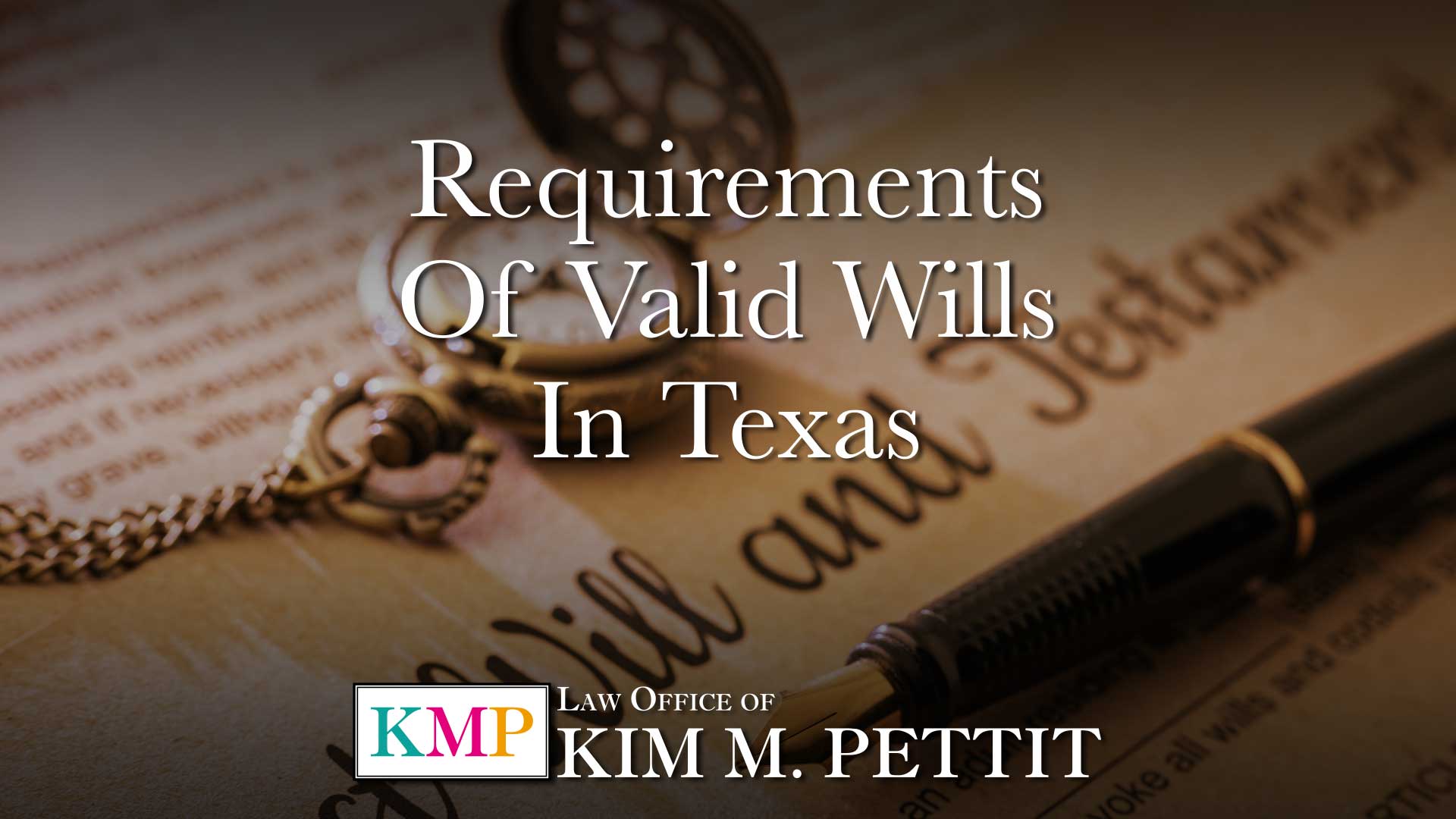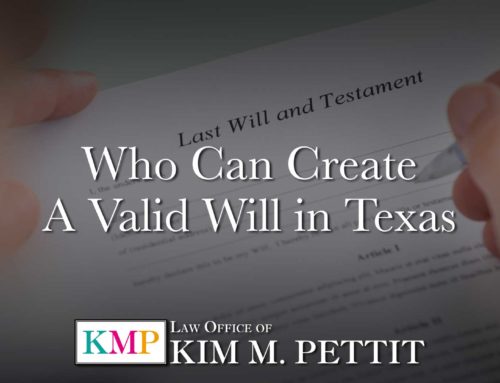There are two kinds of valid wills in Texas. The first is a formal attested will, which is a written will that is signed by the person making the will before a notary public and at least two witnesses. The other is known as a holographic will. A holographic will is a will that is entirely handwritten and is signed by the person creating the will. Texas used to provide for a third kind of will, an oral or nuncupative will, but that kind of will has not been permitted in Texas since September 1, 2007.
When discussing the requirements of valid wills in Texas, it is imperative that one understands the terms testator, executor, and beneficiary. The testator is the person making the will. The executor is the person named in the will who is responsible for paying the bills of the estate and distributing the estate to the beneficiaries according to the terms of the will. The beneficiary is a person named in the will who is to receive part of the estate.
The requirements of valid wills in Texas, attested or holographic, are listed below.
Formal Attested Will
In Texas, a formal attested will must be:
- In writing
- Signed by (a) the testator in person or (b) another person on behalf of the testator in the testator’s presence and under the testator’s direction
- Attested by two or more credible witnesses who are at least 14 years old and who sign their names to the will in their own handwriting in the testator’s presence.
A formal attested will is usually typed and prepared by an attorney. It should have a self-proving affidavit attached, which makes it easy to prove and probate the will. Without this, the judge will require the witnesses who saw the testator sign the will to personally appear in court to testify. A beneficiary should not serve as a witness to the signing of the will. This may prevent the beneficiary from receiving any property under the will.
The will must be signed by the testator. If a testator cannot physically sign his name, he can sign the will with an “X” or other symbol or have another person sign his name so long as the other person does so in the presence of and at the direction of the testator. The usual practice is for the testator and the witnesses to sign the will at the same time and in each other’s presence. It is required that the witnesses sign their names in the presence of the testator, even though they do not need to sign their name in the presence of each other.
Holographic Will
In Texas, a holographic will must be:
- Completely in the testator’s handwriting and should be dated
- No part of the will can be written by anyone else
- No part of it can be typed.
A holographic will is not required to be signed by witnesses. The holographic will must state how the testator wants his estate to be distributed.
A “living will,” also known as a Directive to Physicians & Family or Surrogates, is not a document that disposes of a person’s property. It is a document that describes a person’s preference for end-of-life choices and gives instructions about the use of life-sustaining treatments in the event of a terminal or irreversible condition.
Please contact the Law Office of Kim M. Pettit at (210) 558-4572 or request a consultation below to get started on your will today.






